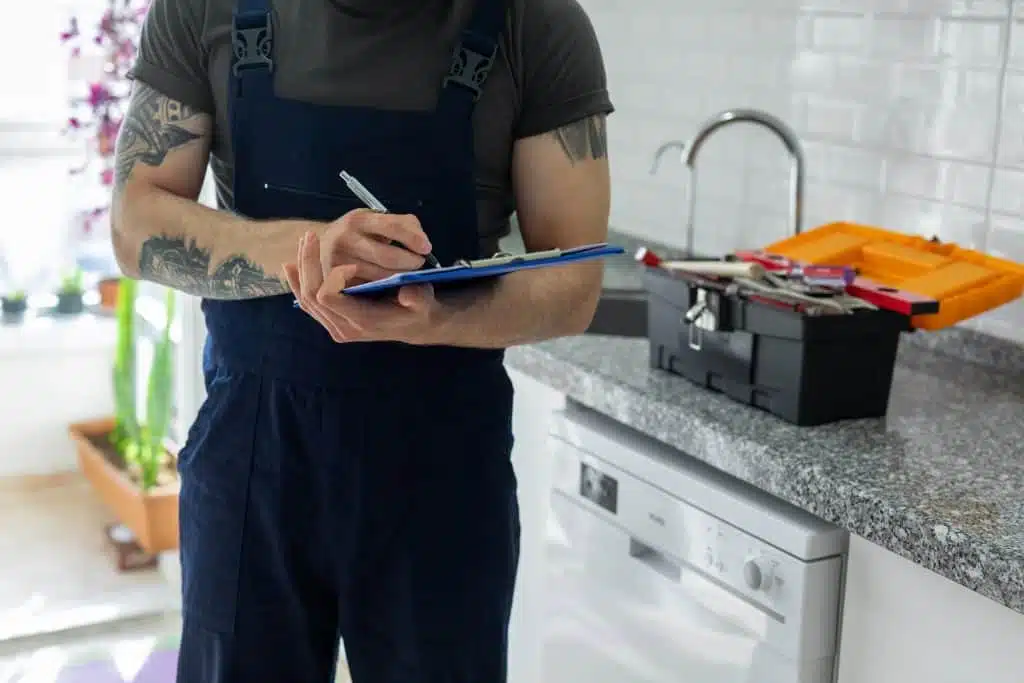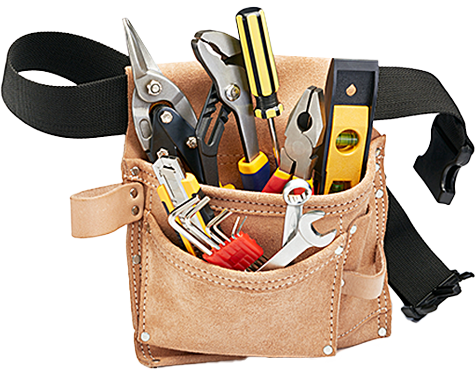Understanding the Impact of Drought on Plumbing
Are you experiencing reduced water pressure in your home during drought conditions?
This common issue arises as droughts significantly diminish the available water supply, causing water pressure to drop in residential plumbing systems.
The scarcity of water forces municipalities to implement water restrictions, impacting the flow to your home.
Maintaining your plumbing during a drought is crucial for conserving water and ensuring system efficiency.
Effects on Water Pressure and Supply
To cope with reduced water pressure, consider the following strategies:
Install a Pressure Regulator: This device helps maintain consistent water pressure in your plumbing system, ensuring adequate flow despite external supply fluctuations.
Check for Leaks: Even minor leaks can exacerbate low water pressure. Regularly inspect your plumbing for any signs of leakage and repair them promptly.
Optimize Water Use: Use appliances and fixtures during off-peak times when water demand is lower, and avoid simultaneous use of multiple water-intensive devices.
Increased Sediment and Debris
Drought conditions often lead to increased sediment in the water supply.
Lower water levels in reservoirs and rivers can stir up sediment, introducing more debris into the municipal water system.
This sediment can cause blockages and damage plumbing fixtures and appliances.
Strategies to Mitigate Sediment Issues:
- Install Sediment Filters: Adding a sediment filter to your plumbing system can capture debris before it enters your home, protecting your fixtures and appliances.
- Regular Maintenance: Clean aerators on faucets and showerheads regularly to prevent buildup. Consider flushing your water heater to remove accumulated sediment.
Strain on Aging Pipes
Drought conditions can put extra stress on older plumbing systems.
Reduced water flow and increased sediment can cause wear and tear on aging pipes, leading to leaks and failures.
Preventative Measures:
- Inspect Pipes Regularly: Look for signs of corrosion, leaks, or damage in your pipes. Early detection can prevent major issues.
- Consider Upgrading: If your plumbing system is particularly old, consider upgrading to modern, more durable materials that can withstand the stresses of drought conditions.
Understanding these impacts and implementing preventative measures can help maintain your plumbing system’s integrity during a drought.
Regular inspections and proactive maintenance are key to avoiding costly repairs and ensuring a reliable water supply in your home.
Water Conservation Strategies for Homes
Efficient Water Use Practices
During a drought, every drop of water counts.
Implementing efficient water use practices in your home can significantly reduce your water consumption, helping you to conserve this precious resource.
Here are some practical tips:
Fix Leaks Promptly:
A dripping faucet can waste gallons of water each day. Regularly check all your faucets, toilets, and pipes for leaks and repair them immediately.
Install Low-Flow Fixtures:
Low-flow faucets, showerheads, and toilets use significantly less water without compromising performance. These fixtures can reduce water usage by up to 60%.
Use Water-Efficient Appliances:
Modern dishwashers and washing machines are designed to use less water. Look for appliances with the WaterSense label, which meet the EPA’s criteria for water efficiency.
Greywater Systems
Greywater systems recycle water from showers, sinks, and laundry for use in irrigation and toilet flushing.
This reduces the demand for fresh water and helps conserve resources during a drought.
Benefits of Greywater Recycling:
- Water Conservation: Greywater recycling can reduce household water consumption by up to 50%.
- Reduced Water Bills: Using recycled greywater for irrigation and toilet flushing can lower your monthly water bills.
- Environmental Benefits: Greywater systems reduce the strain on municipal water supplies and wastewater treatment facilities.
Considerations for Implementing a Greywater System:
- Local Regulations: Check local building codes and regulations before installing a greywater system, as some areas have specific requirements.
- System Design: Work with a professional to design a system that meets your needs and complies with local standards.
Smart Irrigation Techniques
Outdoor water use can account for a significant portion of household water consumption.
During a drought, it’s essential to use water efficiently in your garden and landscape.
Effective Irrigation Practices:
Drip Irrigation: Drip irrigation systems deliver water directly to the root zone of plants, minimizing evaporation and runoff. This method can save up to 70% of the water used by traditional sprinklers.
Water Early or Late: Water your garden in the early morning or late evening to reduce evaporation.
Mulching: Apply mulch around plants to retain soil moisture and reduce the need for frequent watering.
Drought-Resistant Landscaping:
- Choose Native Plants: Native plants are adapted to local climate conditions and typically require less water and maintenance.
- Xeriscaping: This landscaping method involves using drought-resistant plants and minimal irrigation to create a water-efficient garden.
Photo from iStock – Credit bymuratdeniz
Regular Plumbing Maintenance Tips
Inspecting for Leaks
Regular inspection for leaks is essential to maintaining your plumbing system, especially during a drought.
Undetected leaks can lead to significant water waste, increased utility bills, and potential damage to your home. Here’s how to conduct a thorough inspection:
Check Visible Pipes:
Look for signs of moisture, rust, or corrosion on exposed pipes under sinks, in basements, and in crawl spaces.
Pay attention to any wet spots or mold growth, which could indicate a hidden leak.
Inspect Faucets and Showerheads:
Ensure that all faucets and showerheads are tightly closed when not in use.
Even a small drip can waste gallons of water over time. Replace worn-out washers and seals to prevent leaks.
Monitor Your Water Meter:
Turn off all water-using appliances and fixtures in your home.
Check your water meter and wait for an hour without using any water. If the meter changes, it’s a sign of a leak.
Maintaining Fixtures and Appliances
Keeping your plumbing fixtures and appliances in good condition is crucial for ensuring water efficiency and prolonging their lifespan.
Here are some maintenance tips:
-
Faucets and Showerheads:
Clean aerators on faucets and showerheads regularly to remove mineral buildup that can restrict water flow.
Use a vinegar solution to dissolve deposits and improve performance.
-
Toilets:
Check for leaks by adding a few drops of food coloring to the tank.
If the color appears in the bowl without flushing, there’s a leak that needs fixing.
Replace flappers and other worn-out parts as needed.
-
Water Heaters:
Flush your water heater annually to remove sediment buildup, which can reduce efficiency and cause damage.
Check the temperature setting to ensure it’s not higher than necessary, typically around 120°F.
Protecting Pipes and Drains
Preventative measures can protect your pipes and drains from damage, ensuring a smooth and efficient plumbing system.
- Insulate Pipes: Insulate hot water pipes to reduce heat loss and maintain water temperature. This can also prevent pipes from freezing in colder weather.
- Clean Drains Regularly: Use baking soda and vinegar to clean drains and prevent clogs. Avoid pouring grease or oil down the drain, as they can solidify and cause blockages.
- Use Enzymatic Cleaners: Enzymatic drain cleaners are effective at breaking down organic material without the harsh chemicals found in traditional cleaners. They are safer for your pipes and the environment.
Regular plumbing maintenance not only helps conserve water during a drought but also keeps your system running efficiently.
Professional Plumbing Services
When to Call a Plumber
While regular maintenance can prevent many plumbing issues, there are times when professional help is necessary.
Recognizing the signs that indicate the need for a plumber can save you from costly repairs and significant water waste.
Signs You Need a Plumber:
Persistent Leaks: If you have a leak that persists despite your efforts to fix it, it’s time to call a professional. Leaks can cause extensive water damage and increase your utility bills.
Low Water Pressure: Consistently low water pressure throughout your home may indicate a significant problem, such as a hidden leak or a blockage in your plumbing system.
Slow Drains: If your drains are slow despite regular cleaning, there could be a more severe blockage deeper in the pipes that needs professional attention.
Water Stains: Discoloration on walls, ceilings, or floors often signals a leak within the plumbing system that requires professional investigation and repair.
Unpleasant Odors: Persistent sewage or moldy odors can indicate a serious issue like a sewer line problem or a hidden leak that needs immediate professional intervention.
Benefits of Regular Professional Inspections:
- Early Detection: Professional plumbers can spot potential issues before they become major problems, saving you money and inconvenience in the long run.
- Expert Repairs: Professional plumbers have the tools and expertise to handle complex repairs efficiently and effectively, ensuring long-term solutions.
- Maintenance Advice: During inspections, plumbers can provide valuable advice on maintaining your plumbing system and preventing future issues.
Services Offered by Benjamin Franklin Plumbing of Dallas
Benjamin Franklin Plumbing of Dallas provides a comprehensive range of plumbing services to address all your needs, especially during drought conditions.
Here are some of the key services they offer:
Leak Detection and Repair:
Advanced technology to detect hidden leaks and repair them promptly to prevent water waste and damage.
Pipe Repair and Replacement:
Services to fix or replace damaged pipes, ensuring your plumbing system operates efficiently and reliably.
Water Heater Maintenance and Installation:
Expert maintenance and installation services for all types of water heaters, ensuring you have a reliable supply of hot water.
Drain Cleaning and Maintenance:
Professional drain cleaning services to prevent clogs and ensure your plumbing system operates smoothly.
Emergency Plumbing Services:
Available 24/7 to handle any plumbing emergencies, providing peace of mind that help is always just a phone call away.
Customer Testimonials and Case Studies
Benjamin Franklin Plumbing of Dallas has a reputation for excellent customer service and high-quality work.
Here are some testimonials from satisfied customers in Frisco, TX:
John D.: “I had a persistent leak that I couldn’t fix myself. Benjamin Franklin Plumbing came out quickly, found the leak, and repaired it efficiently. Their professionalism and expertise were impressive.”
Susan M.: “During the drought, I noticed a significant drop in water pressure. The team from Benjamin Franklin Plumbing diagnosed the problem and installed a pressure regulator. Now my water pressure is back to normal, and I’m using water more efficiently.”
These testimonials highlight the company’s commitment to customer satisfaction and their ability to handle a variety of plumbing issues effectively.
Long-Term Solutions for Drought-Resilient Plumbing
Upgrading Plumbing Systems
Incorporating modern, water-efficient plumbing systems in your home is a crucial step toward achieving long-term drought resilience.
Upgraded systems not only conserve water but also improve the overall efficiency and lifespan of your plumbing infrastructure.
Benefits of Modern Plumbing Systems:
-
Water Efficiency:
Modern systems are designed to use less water for the same tasks, significantly reducing overall consumption.
Low-flow faucets, showerheads, and toilets are prime examples.
-
Durability:
Newer plumbing materials, such as PEX (cross-linked polyethylene), are more resistant to the wear and tear caused by drought conditions compared to older materials like galvanized steel.
-
Leak Detection:
Advanced systems often include leak detection technologies that can alert homeowners to issues before they become major problems, helping to prevent water waste and damage.
Considerations for Upgrading:
- Cost vs. Savings: While the initial cost of upgrading can be high, the long-term savings on water bills and reduced repair costs often outweigh the upfront investment.
- Professional Assessment: Hire a professional plumber to assess your current system and recommend the best upgrades tailored to your home’s needs.
Financial Incentives and Rebates:
Many municipalities and water agencies offer financial incentives and rebates to homeowners who invest in water-efficient plumbing upgrades.
These programs can significantly offset the costs of installation and encourage more sustainable water use practices.
Sustainable Home Design
Incorporating sustainable design elements into your home can further enhance your ability to conserve water and withstand drought conditions.
Water-Saving Features in Home Design:
Rainwater Harvesting: Collecting and storing rainwater for irrigation and other non-potable uses can greatly reduce your dependence on the municipal water supply.
Permeable Landscaping: Designing your landscape with permeable materials allows rainwater to soak into the ground, replenishing groundwater and reducing runoff.
Efficient Irrigation Systems: Installing smart irrigation systems that adjust watering schedules based on weather conditions and soil moisture levels can prevent overwatering and save significant amounts of water.
Role of Sustainable Materials:
Using sustainable materials in your home construction and renovation projects not only supports environmental goals but also enhances the efficiency and durability of your plumbing system.
Materials such as bamboo, reclaimed wood, and recycled metal are excellent choices for sustainable home design.
Community Involvement and Education
Local Initiatives Supporting Drought Resilience:
Many cities and towns have initiatives designed to support residents in adopting water-efficient practices.
These can include providing free or discounted water-saving devices, offering rebates for landscaping projects that reduce water use, and hosting community events focused on sustainability.
By integrating these long-term solutions into your home and community, you can significantly enhance your drought resilience and contribute to a more sustainable future.
Sustainable plumbing practices and community involvement are key to ensuring that everyone has access to the water they need, even in times of scarcity.
Conclusion
Maintaining your plumbing during a drought is crucial for conserving water and ensuring system efficiency.
Implement water-saving strategies, conduct regular maintenance, and seek professional help from Benjamin Franklin Plumbing of Dallas to mitigate adverse effects.
Engaging with your community in Frisco, TX, and upgrading your plumbing systems can enhance drought resilience and contribute to a sustainable future.
These actions ensure efficient plumbing, conserve water and prevent costly repairs.
Community involvement and modern upgrades support long-term sustainability and drought resilience.
Have you tried any of these strategies? Share your experiences in the comments
Photo from iStock – Credit: porcorex
FAQs
-
How does a drought affect my plumbing system?
A drought can impact your plumbing system by reducing water pressure, increasing sediment and debris in the water supply, and placing additional strain on aging pipes. Low water levels can stir up sediment, causing blockages and damage to fixtures and appliances. Older pipes may experience accelerated wear and tear due to the harsher conditions.
-
What are some effective water conservation strategies for my home?
Effective water conservation strategies include fixing leaks promptly, installing low-flow fixtures, using water-efficient appliances, implementing greywater systems, and practicing smart irrigation techniques. These methods can significantly reduce water usage and help maintain your plumbing system during a drought.
-
How can I detect and fix leaks in my plumbing system?
To detect leaks, inspect visible pipes for moisture, rust, or corrosion, and monitor your water meter for changes when no water is being used. Fix leaks promptly by replacing worn-out washers and seals, tightening connections, and consulting a professional plumber if necessary.
-
What are the benefits of upgrading my plumbing system for drought resilience?
Upgrading your plumbing system to more modern, water-efficient options can significantly reduce water consumption, enhance durability, and provide early leak detection capabilities. Financial incentives and rebates from municipalities can help offset the initial costs of these upgrades, making them a cost-effective solution in the long run.
-
How can community involvement help with water conservation during a drought?
Community involvement can enhance water conservation efforts by encouraging neighborhood participation in workshops and shared resources, promoting educational programs in schools, and supporting local initiatives that provide resources and incentives for water-efficient practices.






